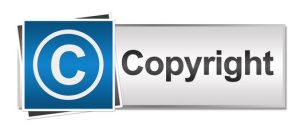
The following rights are conferred under a copyright which includes copying, adapting, distributing, communicating, renting, lending, and performing of the material. Hence, anyone who uses another person’s work must acknowledge and identify the owner of the content. Information saved in computers, databases, web servers, and external hard drives are protected in its original form
Therefore, obtaining a copyright is an essential part of protecting your work. Moreover, the copyright system can help an individual generate sufficient income and incentives for investing in this process. It can act as an incentive so a person can invest in the development of new material. This form of intellectual property rights can serve as a basis for creativity and financial growth.
Many different types of people obtain copyrights including freelance writers, artists, authors, producers, filmmakers, photographers, educational publishers, book illustrators, and publicists. A piece of work is copyrighted when it is in a permanent and tangible form where someone can reproduce or communicate the material
An individual, party or entity can copyright the following things including computer programs; literary, musical and dramatic works; pictures, images, illustrations, drawings and sculptures; sound recordings; films and motion pictures; collections of works and borrowed material; and architectural designs
The following information does not qualify for a copyright: ideas, procedures, methods, processes, systems, titles, names, short phrases, slogans, facts, opinions, news, research, data in public domains, and works that are not permanently in tangible form. An individual who owns a copyright has the authority to do the following with his or her works: reproductions, distributions, performances, demonstrations, communications, and transmissions of the material
Some current and emerging problems facing this kind of intellectual property rights are determining who owns a copyright and the owner of the material object which the copyrighted work is incorporated. Even if a person owns a publication, this does not mean he or she has the rights to make copies of it. This individual will need to get permission from the owner of the copyright. The actual copyright lies with the founder or creator of this piece of work. It is not mandatory to register a copyright in order to make a claim. Nevertheless, you must register it within the first five years that your book was published because this is considered a valid proof of your registration.
Since we live in a technologically advanced society, new challenges will arise in the copyright process. People are trying to leverage the power amid holders and users of copyrights. Issues surrounding copyrights are a very hot debate, especially in the legislative and legal system. Hence, billions of dollars are in jeopardy and technological abilities and laws continuously challenge one another. The problems surrounding copyrights affect the public library system and how they provide information to every day users. Copyrights permit libraries to lend out publications and other resources, and allow them to make reproductions of copyrighted material for general purposes such as replacements of lost books and for the preservation of important information. This is why it is crucial to address these challenges, so that libraries can continue to make fair use of the copyright system for scholarship, research, criticism, comments, and news reporting.
Hence, copyrights can help preserve and safeguard your work and creativity. Remember, this piece of regulation gives the producer protection, control, and authority over his or her works and encourages learning and innovation as well.

